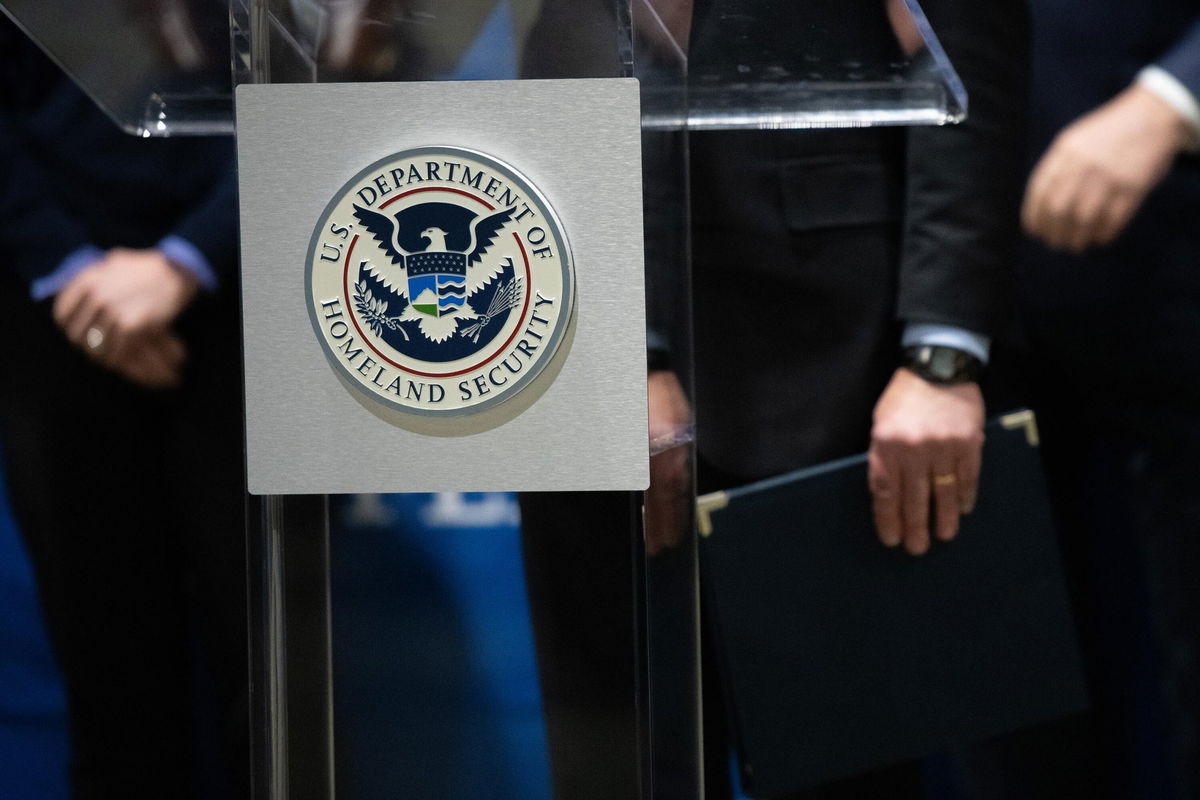New DHS intel chief installed at office plagued by Trump-era controversy

Homeland Security official John Cohen will take over leadership of the department's intelligence branch.
By Geneva Sands, CNN
Homeland Security official John Cohen will take over leadership of the department’s intelligence branch, an office that is still trying to find its footing after a series of controversies during the Trump administration.
In a letter to the DHS workforce, Homeland Security Secretary Alejandro Mayorkas announced Friday that Cohen will serve as the senior official performing the duties of the undersecretary for the Office of Intelligence and Analysis. Cohen will continue serving as the DHS coordinator for counterterrorism. He held similar positions at DHS in the Obama administration and rejoined DHS in January when President Joe Biden took office.
During the final year of the Trump administration, the Intelligence and Analysis office became embroiled in a series of public controversies, starting with a revelation that the office compiled “intelligence reports” about the work of two US journalists covering protests in Portland, Oregon.
Last summer, former acting Homeland Security Secretary Chad Wolf directed the intelligence branch to cease collecting information involving US members of the media and ordered a review of the incident. And Brian Murphy, who served at the time as the acting under secretary for the DHS intelligence office, was reassigned.
About a month later, in a scathing whistleblower report first reported by CNN, Murphy alleged that top DHS political appointees repeatedly instructed career officials to modify intelligence assessments to suit President Donald Trump’s agenda by downplaying Russia’s efforts to interfere in the US and the threat posed by White supremacists.
Most recently, the office came under scrutiny for not producing a bulletin or warning about the potential for violence at the US Capitol on January 6.
The DHS inspector general office is reviewing whether the Office of Intelligence and Analysis fulfilled its responsibility for providing intelligence to law enforcement for the January 6 events at the Capitol.
Asked about the lapse by CNN, a senior DHS official previously said there has “absolutely” been a concerted effort under the Biden administration to push more information from DHS to the public, as well as state and local governments.
In recent years, the intelligence branch suffered in less seen ways as well, according to a person familiar. The office became overly focused on intelligence originating from the federal intelligence community at the expense of its unique ability to capitalize on relationships with non-federal law enforcement entities.
“What I&A has is the relationships with state and local law enforcement and its ability to leverage a broad range of intelligence, law enforcement information and other data to develop unique analytic judgments on emerging threats,” the person said, adding that when the office is “doing its job well it provides tremendous value to protecting the nation.”
Under Mayorkas’ DHS leadership, the office intends to focus on developing analytic products that are valuable to state and local officials, ensuring that personnel that work closely with law enforcement across the US and expanding communication beyond bulletins to “real discussions” at the local level, the person added.
Melissa Smislova, a career official who has led the intelligence office during recent months, will return to her role as deputy undersecretary for intelligence enterprise readiness, working under Cohen’s leadership.
Smislova was left to answer for the role DHS intelligence played leading up to the deadly January 6 riot at the US Capitol. She testified to Capitol Hill committees in March that it is a “complex challenge” to distinguish between people engaged in constitutionally protected activities and those involved in violent behavior.
In a letter to the intelligence branch workforce, Cohen said the US faces a broad range of homeland threats, including increased violent activity from domestic terrorists, increased violent crime in communities across the US, disinformation campaigns by foreign actors and cyberattacks targeting government institutions and the nation’s critical infrastructure.
“Our ability to execute our mission depends on the strength of our partnerships across every level of government and the private sector, ” Cohen wrote, adding that is especially true for the intelligence office, which was established to “focus primarily on supporting the diverse stakeholders that comprise the homeland security enterprise.”
Also announced Friday, Samantha Vinograd, a former CNN national security analyst, will take over Cohen’s other role and serve as the acting assistant secretary for counterterrorism and threat prevention, while continuing to serve as senior counselor for national security.
In recent weeks, DHS officials warned that the same sort of rhetoric and false narratives that fueled the January 6 attack on the US Capitol could lead to more violence this summer by right-wing extremists.
A growing belief among some Donald Trump supporters that the former President will be reinstated in August, coupled with relaxed Covid-19 restrictions, has DHS officials concerned that online rhetoric and threats could translate into actual violence in the coming months as more people are out and in public places. DHS issued an intelligence bulletin to state and local law enforcement partners about the increasing opportunities for violent extremist attacks this summer, including concerns that QAnon conspiracy theorists continue to promote the idea that Trump will return to power in August.
Among the shifts being considered at DHS is the potential to use outside firms to track extremist chatter by Americans online, an effort that would expand the government’s ability to gather intelligence but could draw criticism over surveillance of US citizens, CNN previously reported.
The department is limited in how it can monitor citizens online without justification and is banned from activities like assuming false identities to gain access to private messaging apps used by extremist groups such as the Proud Boys or Oath Keepers — an ongoing challenge for federal authorities.
The-CNN-Wire
™ & © 2021 Cable News Network, Inc., a WarnerMedia Company. All rights reserved.